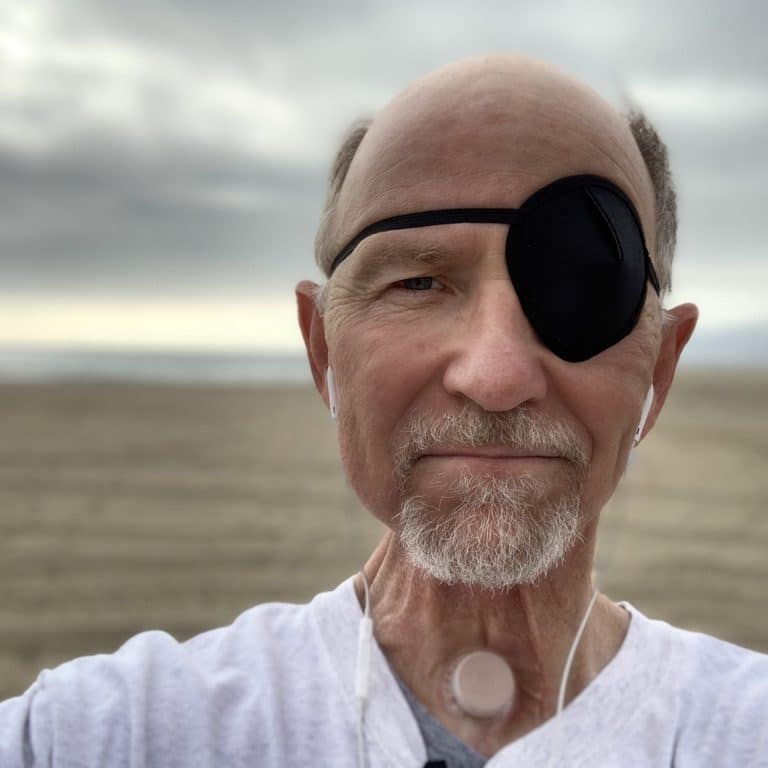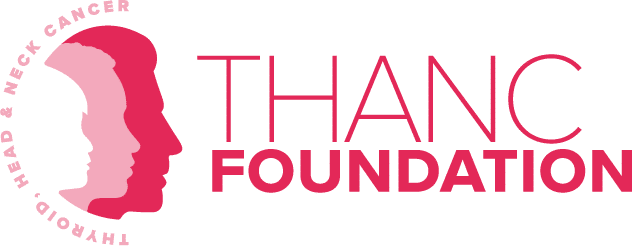
It has been three years since I shared my story with THANC’s 30 Stories in 30 Days campaign. Since then, I’ve often reflected about the meaning of survivorship and resilience. Oh, and I made a movie about it (more on that in a bit).
My cancer journey started in 1997 when I was diagnosed with tonsil cancer. After undergoing a radical neck dissection, I endured aggressive radiation treatments. In 2016, I underwent a laryngectomy, a surgery to remove my voice box, due to long term damage from radiation. The surgery left me with a voice prosthesis from which I speak, and a hole in my neck (stoma) from which I breathe.
For a lot of laryngectomees, loss of confidence and feelings of stolen self-identity are common. Many avoid going out in public, a common embarrassment among head and neck cancer patients who’ve had disfiguring surgeries. Others shy away from social situations because of the way they sound. But isolation creates or exacerbates emotional issues.
I’ve spent a good amount of time contemplating the meaning of survivorship and its relationship to attitude of mind. I think it’s important to recover holistically.
For months after my laryngectomy, I was saddled with insecurity, fear and doubt. I found healing in family, friends and support groups. I’m still an active member of two groups originating from Keck Medicine of USC – Nu Voices L.A. laryngectomy support group and HNC Support International. We’ve continued to meet throughout the pandemic on Zoom. I’ve found that virtual groups still offer intimate and productive support online. And there are added benefits in that it’s easier for participants to join from home, and we can reach folks from all over the country.
As stated earlier, I’ve spent a good amount of time contemplating the meaning of survivorship and its relationship to attitude of mind. I think it’s important to recover holistically. This includes traditional medicine, nutrition, mindfulness, exercise and doing the things you love to do. I practice deep breathing. I walk 20 miles a week, listening to fascinating podcasts or blasting my favorite music (I’ll probably need to visit the ear doctor next). I watch TV shows that make me laugh, my current favorite is Ted Lasso. When the pandemic ends, I’ll be first in line to attend concerts, movies and plays.
There will be landmines along your path, but laughter, exercise, mindfulness, hope and attitude of mind are your best friends.
There are no guidelines or timetables to survivorship. It’s different for everyone. Outcomes vary. It’s easy to slip into the “why me?” state of mind. Why did I get cancer? Invariably, I ask this when I’m feeling sorry for myself. At these times, I try to remember to reframe the question to, “Why not me?” Can I construct something affirmative from my situation? Maybe a deeper personal awareness and understanding. Is there a part of my psyche or experience that I can harness to ease others through the same ordeal?
For me, making the film ‘Can You Hear My Voice?” was that vehicle. In some ways, it’s my thesis about cancer survivorship. The film chronicles the one-of-a-kind Shout at Cancer choir, whose members have all had their voice boxes removed, as they prepare for an ambitious concert at London’s historic Tabernacle theater. Of the film, critic Richard Propes writes, “…An absolutely sublime moviegoing experience that will make you laugh, cry, shout, be grateful and believe.”
So, what are the findings of my survivorship research? It’s not complicated, but it’s often hard to see through the emotional thunderstorm of a cancer diagnosis and the haze of treatments. There will be landmines along your path, but laughter, exercise, mindfulness, hope and attitude of mind are your best friends. And hopefully, when you stare at your surgery scars in the mirror, you can see them as where you were healed, and not where you were injured.

Will You Share Your Journey?
April is Oral Cancer Awareness Month. As part of that theme, we post stories written by oral cancer survivors, caregivers and medical professionals for our 30 Stories in 30 Days™ campaign. The insights they share can help others along their journey.


